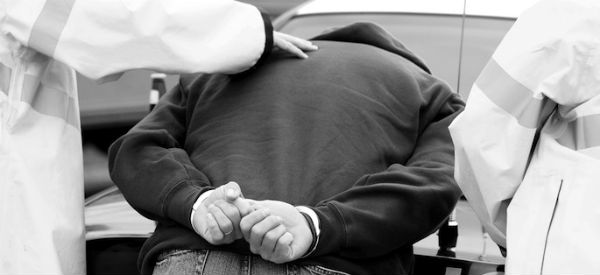
Legal & Planning
What To Do When An Individual With Special Needs Gets Arrested
People with severe mental illness and others with severe behavior problems can become disproportionately involved in the criminal justice system. Due to a lack of awareness, a lack of preventative measures, and a lack of understanding about mental illness, often times, the criminal justice system is ill-equipped to respond to the needs of this special population. While each state differs in the programs available and processes for dealing with people with special needs who have been arrested, the article below outlines the basics for navigating the criminal justice system.Processing
In general, when someone is arrested, they are often taken to a place to be processed. At this point, the arrestee goes in front of a judge to determine if there is probable cause (i.e., enough information to support an officer in making the arrest) to hold the person.Bond
If the person can be held, a bond (the amount of money the Judge will set to ensure the person will return to court) will be set or the person may be released on their own recognizance or released to a caregiver who can assure the person will return to court. If the person cannot pay the bond amount, he or she will be held in custody until their case can be heard.Additional Challenges For Individuals With Special Needs
For people with mental illness, the process is no different. However the consequences may be more detrimental. For example, if the person is held in custody and has not alerted the jail staff of his condition, he may not receive treatment or medications. Or if he does self-identify as someone in need of treatment, the medications available may not be the same as those the person usually takes.Some States Offer Special Treatment
Some states have special processes or programs for people with mental illness or those suspected of having mental illness based on their behavior. For example, some states have specific courts to deal with individuals with mental illness who are charged with a crime. These special courts are more aware of the needs of individuals with mental illness and may be able to work with treatment providers to help the person get appropriate treatment and possibly avoid incarceration. Unfortunately, these programs may not be available in all states. It is important to contact your state’s court and prison system to understand what programs are available.What Parents Can Do
For parents or caregivers of a person with mental illness who has been arrested, there are things you can do:1. Get A Lawyer
First off, consult with a criminal defense attorney and make sure he or she is aware of your child’s condition and needed treatments.2. Explain The Situation To Everyone
Make sure you attend as many hearings as possible and ensure your child’s diagnosis is known by everyone involved (including the judge and prosecutor).3. Think prevention
If there are certain triggers or situations you know that may cause problems for your child, discuss them ahead of time with the attorney. For example, if your child has clothing or diet sensitivities, having your child’s attorney contact the prison to arrange an accommodation may be possible.4. Treatments And Medication
 If your child is to be held in custody, make sure your child’s attorney knows what treatments or medications your child takes so the jail can help make sure your child’s treatment continues to the highest extent possible.
If your child is to be held in custody, make sure your child’s attorney knows what treatments or medications your child takes so the jail can help make sure your child’s treatment continues to the highest extent possible.



